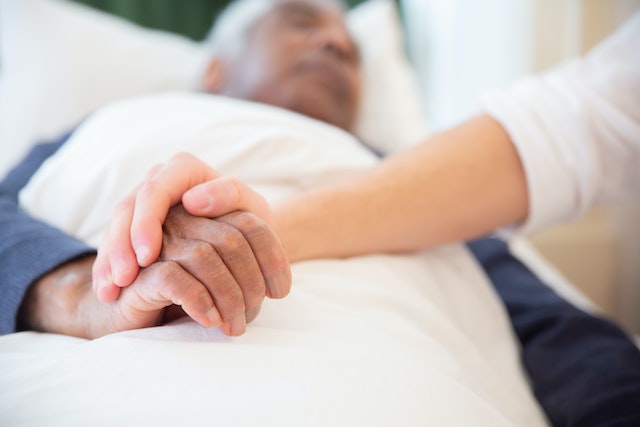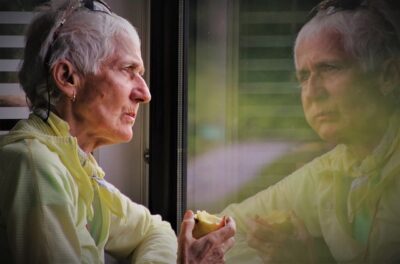Old age has long been perceived as a stage of life characterized by a release from professional and personal obligations and a concomitant liberty to enjoy a carefree existence. However, this concept is at odds with the realities most seniors encounter. Merely retiring from one’s career does not entail relinquishing life’s challenges.
When daunting health challenges, deteriorating physical mobility, and chronic or lifestyle-associated ailments factor in, life becomes an uphill battle. The difficulties are compounded when an individual is confined to bed rest, necessitating the aid of family members and caregivers for their basic requirements.
In addition to exhibiting care and empathy, adherence to specific protocols can ameliorate bedridden individuals’ living conditions while mitigating supplementary discomforts. Today, we will discuss six tips on how to care for elderly bedridden patients at home.
1. Acquire Knowledge of Medical Equipment:
As caregivers of bedridden elders, it is imperative to ensure their comfort and safety and ensure you have the necessary medical equipment to monitor them. Hospitals are equipped with supplies to cater to such patients, but sometimes these supplies are also needed outside the premises.
Caregivers must learn and understand the proper usage of medical equipment required for patient care, such as feeding tubes, breathing machines, specialized beds, and vital signs monitors if the medical condition warrants it.
Vital signs monitors are commonly used in hospitals and are increasingly becoming prevalent in the homes of patients suffering from chronic illnesses, diabetes, and other medical conditions. Patient monitors measure, record, and display various parameters of the patient’s health, such as blood pressure, respiratory rate, heart rate and rhythm, temperature, etc.
Correct medical equipment usage ensures that bedridden elders receive the best possible supervision and comfort.
Therefore, it is highly recommended that caregivers receive professional training or guidance from healthcare professionals to guarantee proper handling of the medical equipment.
By doing so, caregivers can efficiently manage the technicalities behind them and provide optimal care to the bedridden patient, ensuring their well-being and safety.
2. Prevent Bedsores:
Bedsores, also called pressure sores, are wounds that occur when an individual remains seated or lying in a single position for prolonged periods. The pressure on specific body areas, such as the buttocks, legs, and thighs, can cause the skin to break down and ultimately split apart. It can result in severe discomfort and pain and, in more severe cases, may lead to infection and potentially fatal complications that can decrease the individual’s lifespan.
The good news is that bedsores can be easily prevented! To minimize the risk, one can adopt the following measures:
- Reposition the person every few hours, especially if they spend much time in bed.
- Encourage self-adjustment.
- Look for bedsores in the common areas like heels, hips, ankles, and tailbone. Again, catching them early is the key!
3. Change Bed Linens Frequently:
Changing bed linens frequently may appear trivial, yet it can have a significant impact on hygiene and health. It is because bedding can accumulate debris, including food, skin particles, dirt, and remnants of bed baths. As such, it is imperative to maintain proper hygiene by regularly changing bed linens.
Changing the bed linens, including the fitted sheet, top sheet, and pillowcases, is crucial for bedridden elders every 2-3 days due to their extended time spent in bed. Ensure that the new linens have been adequately laundered and cleaned before use.
Additionally, discuss the fabric material of the bedsheets with the individual to determine if it is soft enough and maintains appropriate temperature levels.
4. Give Them Massage:
When caring for a bedridden loved one, it’s important to remember the benefits of gentle massage sessions. Not only can this help improve blood circulation, but it can also assist in maintaining the health of their skin. To enhance the experience, consider using a moisturizing lotion like Vaseline, but check for allergies first.
Regular massage sessions may help prevent skin damage by promoting better circulation. And while giving the massage, watch for any rashes, injuries, or scabs on their skin. If you notice anything concerning, don’t hesitate to inform the doctor. Remember, their safety and well-being are the top priority.
5. Maintain Good Nutrition:
The importance of proper nutrition cannot be overstated in the recovery of bedridden individuals. The physician will provide dietary recommendations based on their condition, which should serve as a basis for meal planning. It is important to select nutrient-dense foods that are easy to swallow to prevent choking or other unwanted incidences.
Appetite fluctuations may be observed in your loved one, so it is important to accommodate their eating habits by scheduling small snack portions throughout the day or regular mealtimes, as needed. Adjustments should be made as their appetite improves, and physicians should be informed.
Your loved one can regain strength, maintain a healthy weight, and optimize bodily functions with proper nutrition. Remember to keep them hydrated with plenty of water and limit sugary drinks and snacks!
6. Be Compassionate and Understanding:
When providing care for a loved one, the road ahead can be difficult, and you may find yourself staggering along the way. As a result, it’s common to feel a sense of discontentment or get swamped by the tasks required to support an elder.
Losing one’s independence can be a jarring experience, and relying on others for even the most basic tasks can be demotivating. However, being present for your loved one when they need support can make a significant difference. However, adapting to this new role is possible with patience, love, and empathy.
If you start to feel overwhelmed, stepping back can benefit you and your loved one before things escalate. Communicate openly with them about their feelings, what you can do to help, and resolve any misunderstandings that may arise. If your loved one has difficulty communicating, explore other ways to show them your presence and support and that everything will be okay.
Conclusion:
Caring for a bedridden elder is not an easy task. Providing the best possible medical care and addressing their needs with the utmost attention is vital. It’s also important to remember that this journey can be overwhelming.
Still, by staying connected and communicating effectively with others, seeking out support and resources, and making self-care a priority, caregiving can be a rewarding experience.
However, it’s also a time when you can build a stronger bond with your loved one and develop a deeper sense of compassion and empathy.










